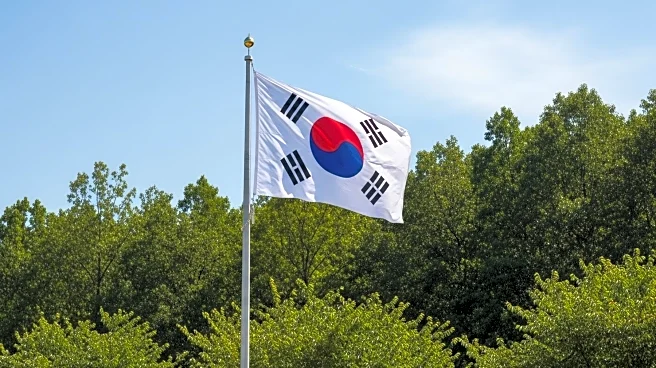What's Happening?
South Korean President Lee Jae-myung has ordered 'all-out efforts' to address the detention of hundreds of South Korean nationals following an immigration raid at a Hyundai facility in Georgia. The raid, conducted by federal and immigration agents, resulted in the arrest of 475 individuals, primarily South Korean citizens, as part of a criminal investigation into alleged unlawful employment practices. The South Korean government has expressed deep concern over the arrests and has established a response team to manage the situation. The raid is part of the Trump administration's intensified crackdown on immigration, marking the largest single-site enforcement operation in the history of the Department of Homeland Security.
Why It's Important?
The incident has significant implications for U.S.-South Korea relations, potentially straining diplomatic ties between the two nations. South Korea is a key ally and trading partner of the United States, and the raid comes shortly after a summit between President Trump and President Lee, where South Korean firms pledged substantial investments in the U.S. The arrests could impact future business dealings and investments, as well as the perception of the U.S. as a favorable business environment. The situation also highlights the broader challenges and controversies surrounding immigration enforcement policies under the Trump administration.
What's Next?
South Korea's Foreign Minister Cho Hyun is prepared to travel to Washington to meet with U.S. officials if necessary, emphasizing the importance of protecting the rights of South Korean citizens. The South Korean government is actively working to secure the release of the detained individuals and is urging its citizens in the U.S. to return home or remain at their accommodations. The incident may lead to diplomatic discussions and negotiations to address the concerns raised by the raid and its impact on bilateral relations.
Beyond the Headlines
The raid has sparked criticism from South Korean political figures and media, with concerns about the potential repercussions for South Korean businesses and communities in the U.S. The incident is seen as a diplomatic setback, especially in light of recent investments and commitments made by South Korean companies in the U.S. The situation underscores the complexities of immigration enforcement and its intersection with international business and diplomacy.









